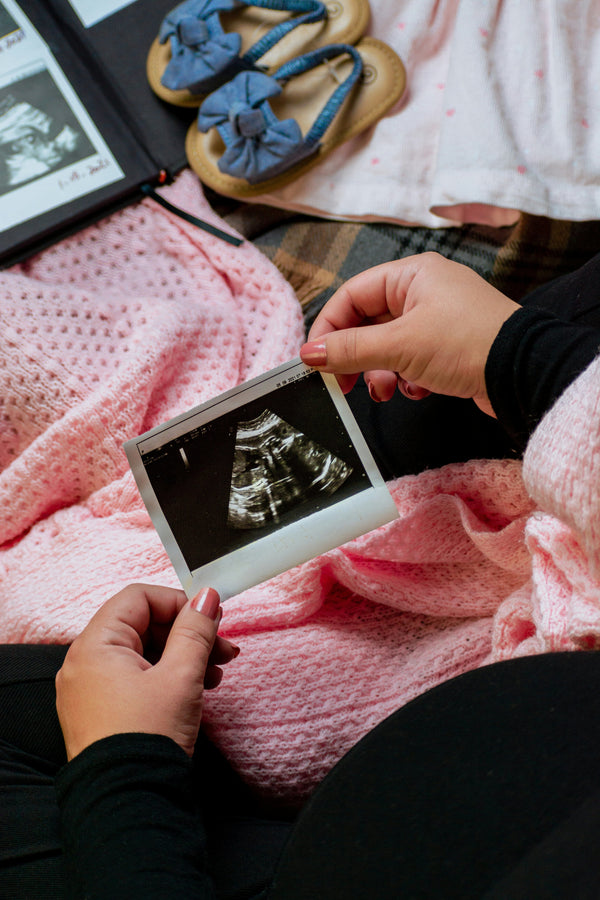Article
Your Energy Levels in the Second Trimester
Posted on
Disclaimer: Every pregnancy is unique. What you experience may be very different from a friend or even from one pregnancy to the next. The information below is general and for educational purposes only. Always speak to your midwife, GP, or qualified health professional before making changes to your lifestyle or supplements.
Looking Back: The First Trimester
The first trimester, covering weeks 1 to 12, is a period of huge transformation. Your baby starts as a cluster of cells and develops into a recognisable foetus with a beating heart, tiny limbs, and the beginnings of organs and facial features. By the end of the first trimester, all major organs have formed and your baby is starting to grow rapidly.
For many women, the first trimester can feel like a marathon of tiredness. Hormones such as progesterone are surging, your body is adjusting to supporting a pregnancy, and you may also be dealing with morning sickness, breast tenderness, and heightened emotions. Fatigue at this stage can feel overwhelming and it is very common to need extra rest.
The Energy Boost of the Second Trimester
The second trimester, from weeks 13 to 27, is often called the “honeymoon period” of pregnancy. Many women find that nausea eases, their body adjusts to the hormonal changes, and energy levels rise. This is partly because your placenta is now fully functioning and supporting your baby, and your body has adapted to the extra demands of pregnancy.
You may feel more like yourself, with better sleep, fewer food aversions, and a general sense of increased vitality. It can be a great time to be active, make plans, and enjoy preparing for your baby. However, it is still important to pace yourself and remember that your body is working hard in the background.
Comparing with the Third Trimester
The third trimester can feel more physically demanding again. As your baby grows, you may experience backache, heartburn, disrupted sleep, and shortness of breath. Energy levels often dip once more as your body diverts resources to your baby’s final growth and you carry extra weight. That is why the second trimester can feel like a sweet spot between the early exhaustion and the later physical strain.
Tips for Maintaining or Boosting Energy in the Second Trimester
Prioritise good sleep: Try to keep a regular bedtime routine. Gentle stretches, reading, or a warm bath before bed can help you unwind.
Eat balanced meals: Include complex carbohydrates, lean protein, healthy fats, and plenty of fruit and vegetables to keep your blood sugar stable.
Stay hydrated: Even mild dehydration can cause fatigue. Aim for water or herbal teas throughout the day.
Gentle exercise: Walking, swimming, or prenatal yoga can increase circulation, boost mood, and support stamina.
Rest when needed: Listen to your body and do not feel guilty about naps or quiet time.
Manage stress: Mindfulness, breathing exercises, or simply taking time for enjoyable activities can keep mental energy high.
Supplement Support
While a balanced diet should always be the foundation, pregnancy can increase nutritional needs. In the UK, official recommendations include taking 400 micrograms of folic acid daily up to 12 weeks of pregnancy and 10 micrograms of vitamin D throughout pregnancy and breastfeeding. Some women may also benefit from iron, omega-3 fatty acids, or additional vitamins and minerals, depending on their individual needs.
One supplement designed specifically for the second trimester is Zita West Vital Essence 2. This is formulated to provide nutrients that support both your baby’s continued development and your own energy and wellbeing at this stage. It contains a mix of vitamins, minerals, and antioxidants tailored for weeks 13 to 28.
Further reading
-

Is this normal in trimester 2?
Pregnancy can feel like a constant swirl of questions and new experiences. The second trimester is often called the “honeymoon... -

Myths About Early Pregnancy Safety
Trigger Warning: This post discusses early pregnancy, including topics such as miscarriage and common symptoms. The first twelve weeks of...


